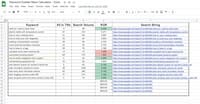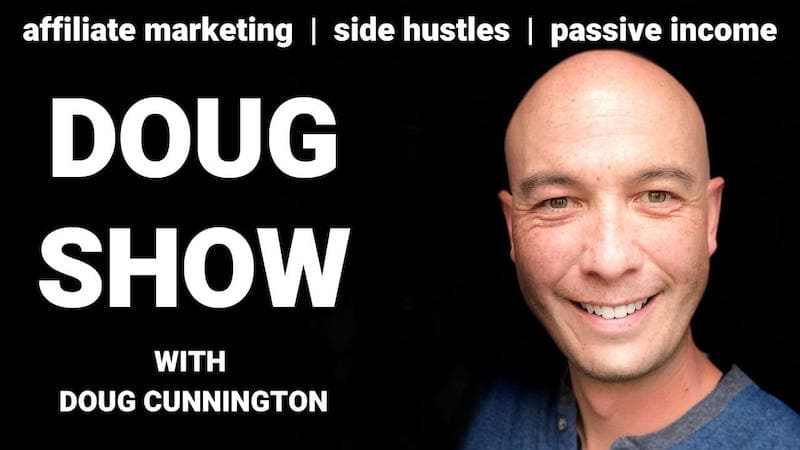When you’re choosing a domain name for your niche site, or any website, it seems like a pretty permanent decision. I mean, you pay for the domain by the year and you can even pay years in advance.
You want to have a name that:
- Embodies your brand
- Ideas
- Overall message
- And so on
That’s a LOT of pressure! Here are some tips to help you find a great domain name for your niche site.
Keep It Short
Shorter URLs are better and if you can have a short domain name, it helps. Now, you probably can’t get many single word domain names anymore, but you can still keep your domain name concise.
Some people say you should keep your domain name under 13 characters or so. It seemed to be an arbitrary length but it stuck with me. Maybe 13 characters is arbitrary but keeping it short is a good idea.
Don’t Use Any Numbers or Hyphens
If you use numbers, then people might not know if they should type in the word or the digit. It’s not a major deal and some sites break the rule, like:
- fourhourworkweek.com
- fivefigurenichesite.com
- Yep, I just classified Tim Ferriss’s site with mine and I can do that since it’s my blog. 🙂
If you have a great domain in mind with a number, then you can use it. There are worse things. But it’d be wise to buy and hold the other domain name, too. I did that so no one else could squat on the corresponding domain.
Hyphens are similar in that you don’t want to have to explain how to type out your domain name. People may be tempted to add hyphens when the primary choice is taken. For example, what if Tim Ferriss had hyphens in his domain name?
My site is “Four Hour Work Week,” but you need to spell out the word “four.” Also there are hyphens between “four hour” and “work week.”
That would be confusing to explain and hard to understand. You get the point–don’t use numbers or hyphens.
Forget About Exact Match Domains
It’s not 2005 anymore and exact match domains won’t get you to #1. The main reason I don’t like exact match domains is your site is pigeon-holed into a specific keyword set. That’s terrible for growing.
The EMD [exact match domain] update made it very clear that exact match domains don’t do jack. Instead of MostComfortableMaleThongsX.com, go for ComfyThongs.com.
Partial match domains should be fine though. That just means the domain has 1 or 2 keywords in the name, i.e. it partially matches. You can see that in Brian’s example above.
(Note: The EMD update rolled out in 2012 and you can read more about it here.)
Don’t Try To Be Too Creative or Cute
If you try to be creative and make up a word, then you’ll constantly be explaining it to people. Make it simple and easy to understand. In fact, it’s great if you can tell someone the name of your site and they’d know exactly what the site is about.
This also means you shouldn’t be “cute” and spell words in a strange way.
There are a lot of examples that break this rule. Here are 3:
If you think big, bigger than me anyway, then go for it! But be ready to explain how to spell your domain. The examples above work for certain reasons. Flickr and Fiverr are big companies that had big visions and growth plans. That means they had the budget to spread the word.
Kopywriting Kourse was created by Neville Medhora, a world class copywriter, who has great connections with bigger companies. One of them is AppSumo. And Nev already had a following and was a successful entrepreneur when he got started. That always helps move things along.
Don’t Use A Brand Name or a Trademark
You’ll run into trouble if you do. At first it won’t matter since your site won’t get any traffic. But once your site starts getting traffic, you’ll get an email saying you have to stop using the domain.
Sometimes you can’t even 301 redirect the traffic due to legal mandates and that means you’ll lose any of the links that you’ve worked for. That would suck!
I don’t care if you have examples where people are able to do this. That is a rare occurrence. Most of the time people guard their trademarked names and have lawyers defending them.
Here is one great example with Pat Flynn of Smart Passive Income. His first online business was dealing with the LEED Certification. He used this catchy domain originally:
intheleed.com
Later Pat got a word from the U.S. Green Building Council that he was using their trademark and had to change the domain name.
Check If the Domain Was Owned Before
When people don’t renew their domains, other people, anyone, can buy the domain. The domain essential goes back out onto the open market.
It’s the way private blog networks work. This can be a good or bad thing.
- Good: If you can find a domain that was previously owned and does not have any spammy links, then you can take advantage of that.
- Bad: If you can find a domain that was previously owned and has spammy links, then you’re in trouble. Those spammy links will point to your site. That’s a very bad thing. In the worst case, the domain may have a penalty attached to it. You won’t be able to rank in Google if that is the case.
So you can look up the historic information to get some background on the domain. And you should always check the Wayback Machine to see what’s archive for the domain.
Remember, You Can Change It
If you pick a domain name and decide you don’t like it in the future, no problem! It’s a reversible decision.
Sure, it can be a little bit of a pain to change, but it’s something you can solve.
Matt at Dumb Passive Income wrote about how he picked a bad domain and what he did to fix it.
Don’t stress out about choosing a domain and please don’t spend too much time on it. You’re way better off launching your site and adjusting along the way.
Further Reading & References
- The Psychology Behind Choosing a Killer Domain Name by Neil Patel
- Why Google Hates Your Site by Brian Dean
- Finding Brandable Domain Names by Lewis Ogden
- Choosing Domain Names by Chris Lee
- Choosing the Right Domain Name for Niche Sites by Al-Amin Kabir
- Domain Age Checker
- The Wayback Machine
- About the Exact Match Domain (EMD) Update in 2012




Comments on this entry are closed.
Great article on picking a domain name but I would be interested in hearing your thoughts on using your own name as the domain?
If the domain name doesn’t really make a huge difference in ranking would building a blog tied to my own name be a good thing? It would certainly be brandable but it would not instantly explain what the blog is about.
The downside would be, of course, that it would make the domain very difficult to sell to another buyer.
As I said at the top if this reply, I would love to hear your thoughts on this.
Thanks for a great post and all of the knowledge you are sharing.
Ken